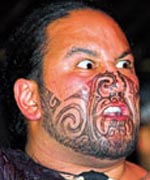New Zealand, or Aotearoa as this southern nation is known in the Polynesian language of its first settlers, has really placed itself on the tourist map. The small nation offers stunning landscapes of fire, mountain, ocean and forest and was the setting for the film, Lord of the Rings. It is also, in a very unassuming Kiwi way, making great strides in terms of Islamic finance, writes John Foster.

According to the census figures of 2006, there are about 36,000 Muslims resident in New Zealand from various ethnic backgrounds including Europeans and Maori. Islam is also the fastest growing religion amongst the Maori community, but until recently, Shari’ah compliant financing was not available in New Zealand. In 2005 Crescent Financing Company (CFC), an Islamic finance company, was launched in Hamilton. CFC’s current product is based upon Modarabah, with future plans to provide debt financing instruments such as Ijarah, Murabahah and Musharakah. To date, CFC is the only Islamic finance company with a Shari’ah advisor, Dr Ahmad Rufai.
In 2006, Foundation Capital Markets (FCM) released a product called Manzil which is structured on Ijarah principles. Although FCM does not claim that Manzil is Halal, as the foundation does not yet have a Shari’ah supervisory board, the product was recommended to New Zealand Muslims by the chairman of the Federation of Islamic Associations of New Zealand (FIANZ) as a viable alternative to Haram mortgages. Manzil is the only Shari’ah compliant product available for Muslims at the moment in New Zealand to lease-purchase homes, however CFC is developing an interest-free mortgage product. FCM is also in the process of introducing a Sukuk product that it calls rated bonds for Islamic capital markets.
Al-Haramain Islamic Finance is another provider that registered in 2007 in New Zealand. The focus of this provider appears to be on sourcing funds from Islamic institutional investors for investment in Shari’ah compliant products and for funding housing projects on Shari’ah terms.
WSBC Islamia is the most recent addition to the list of institutions trying to provide Shari’ah compliant finance products in New Zealand. The group made a submission to the FIANZ council in June 2007, where it revealed its plans to open a window for WSBC Bank to provide Shari’ah compliant investment opportunities in New Zealand.
Demand
There have been a number of initiatives in the past to introduce Islamic financial products in the country that did not take off for one reason or another. Suffice to say that the current products available are limited in the opportunities they provide for investment. There is a need for more Shari’ah compliant products in the Sukuk, Takaful and mutual fund categories to meet the demand of Muslims in New Zealand.
“THERE IS A GREAT DEAL OF GROWTH IN THE SMALL TO MEDIUM-SIZED BUSINESS SECTOR IN NEW ZEALAND, AND THESE BUSINESSES NEED WORKING CAPITAL TO GROW. THE WAY THAT ISLAMIC FINANCE COMPANIES CAN HELP IS THROUGH MODARABAH.”
However, the excitement in Islamic finance in New Zealand is not coming from the Muslim retail level. The real story is at the non-Muslim retail and governmental level.
“There are not enough Muslims in New Zealand for Islamic finance to take off if Islamic finance companies only concentrate on the indigenous Muslim community. Therefore, we are concentrating on distributing products to the non-Muslim community in New Zealand,” said Hassan Omar Ahmed, managing director of CFC.
Universal appeal
Ahmed explained that Shari’ah compliant financial products are not just for Muslims, but for everyone, and this is the approach that Islamic finance companies are taking in New Zealand. “There is a great deal of growth in the small to medium-sized business sector in New Zealand, and these businesses need working capital to grow. The way that Islamic finance companies can help is through Modarabah, or profit sharing, a concept that we are very comfortable with and can really vitalise the SME sector. Islamic finance companies have the products to be very innovative here, and there is great potential for crossover into the non-Muslim community.”
He also argued that mortgages based on Islamic principles were a potentially huge growth area as he believed that over the longer term that Islamic mortgages offered a better deal than the conventional mortgages offered in New Zealand. The country has one of the lowest mortgage default rates in the world and CFC want to enter the market, “there is no way that a conventional product can beat a Murabahah BBA product. If the buyer wants to save money and understands the concept, then this is the product for them. Period.”
At the retail level, Deloitte has been trying to increase the depth of understanding, and Faris Azimullah, partner, enterprise risk services for Deloitte said, “we ran a number of public seminars to introduce the concept of Islamic finance, and we are also involved in a project to find new ways of attracting foreign direct investment into New Zealand. The public sessions we ran in conjunction with FIANZ were well attended and the feedback we got was overwhelmingly positive from the local Muslim community. There was a lot of coverage in the media, including radio and TV talk shows. The biggest task was to challenge the misconceptions.”
Leverage
However, retail is not the only story. Dr. Mustafa Farouk, vice president of FIANZ said, “The New Zealand government, through the ministry of economic development, has started to take a long, hard look at the opportunities presented to it by Islamic finance. New Zealand already has a free trade agreement with the GCC and is trying to find ways to lever that relationship to benefit the country in other ways, and one method of doing this is through Islamic finance.” Dr Farouk also thinks that it is inevitable that the New Zealand government will enter the Islamic capital markets soon and issue a Sukuk.
Tariq Ashraf, policy analyst for the government urban and economic development office, economic strategy branch of the ministry of economic development has been engaged in a government project to introduce Islamic finance to New Zealand. “After September 11th, we saw that there was a flight of Middle Eastern capital away from the US and western markets. That capital has not returned in strength, but Middle Eastern investors are looking to house their capital elsewhere. We want to attract FDI to New Zealand and tap into the Middle Eastern markets.”
One route that the government identified was through Islamic finance and the first thing that it did was lower the regulatory barriers to the adoption and development of Islamic finance instruments. Today there are no barriers to entry for Islamic finance products in New Zealand.
Foreign investors
The other side of the equation was to offer small, growing New Zealand companies the opportunity to internationalize and scale up and the government has done this through the development of a venture investment fund. By creating an environment that attracts Middle Eastern investors, the government hopes to energies the New Zealand economy. To some extent this is already working. Sheikh Ahmed bin Saeed al Maktoum’s Dubai Aerospace Enterprise is making a $1.8 billion offer for 51 per cent of Auckland international airport.
New Zealand’s nearest Muslim countries are Indonesia, Brunei, Singapore and Malaysia and its industries have to access the Asian markets, and could use Islamic finance as a lever in this situation as well. Ashraf said, “although at the moment New Zealand does not have a problem raising capital at the national level, I cannot see, on the theoretical level, why the New Zealand government cannot consider issuing sovereign Sukuk. The Sukuk market is something we are looking into.”
As Ahmed said, “the New Zealand government will issue Sukuk at some point. The regulatory environment is there and there are no impediments. But we have to look at the secondary level as well. New Zealand has to become an international player in Islamic finance, and should follow the Singapore model. Three years ago there were no Islamic products in Singapore, now it manages more than $10 billion.”
WeInvests is a financial portal-based research agency. We do our utmost best to offer reliable and unbiased information about crypto, finance, trading and stocks. However, we do not offer financial advice and users should always carry out their own research.
Read More










